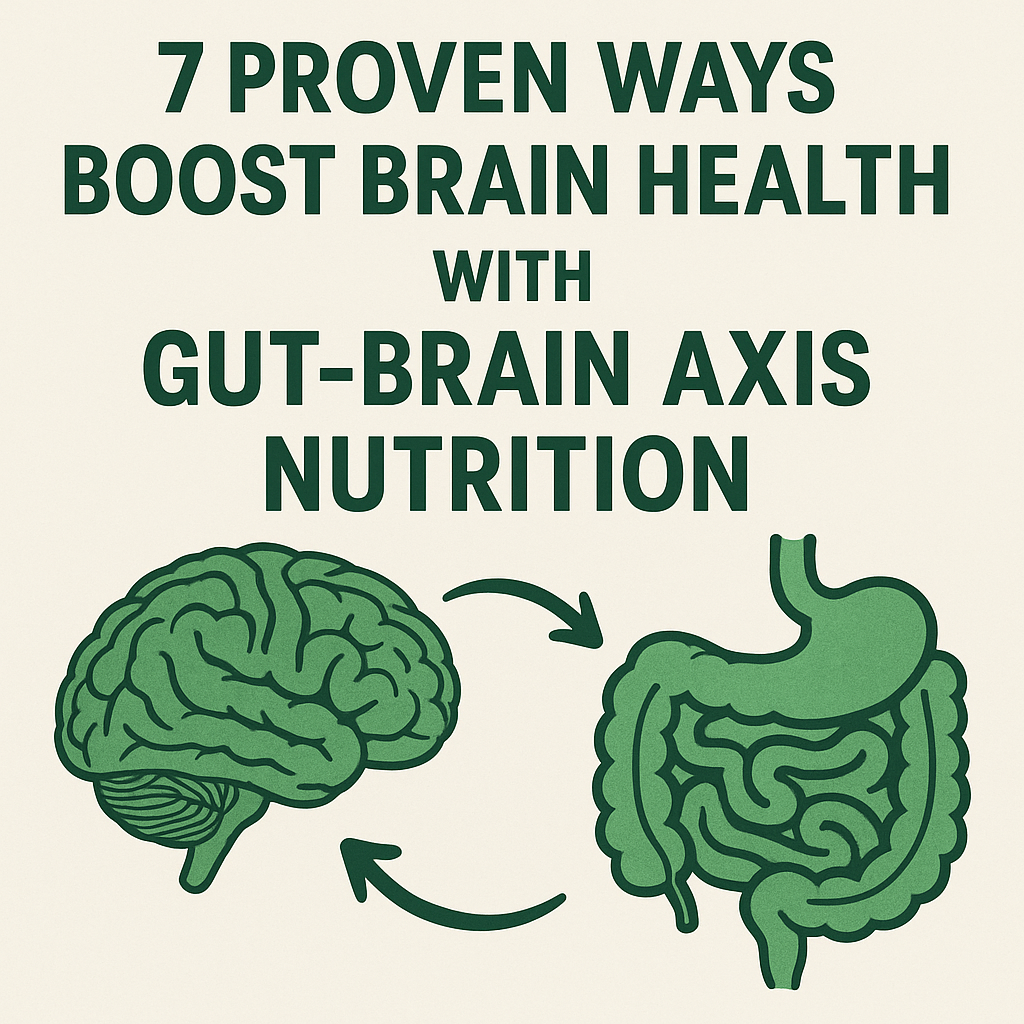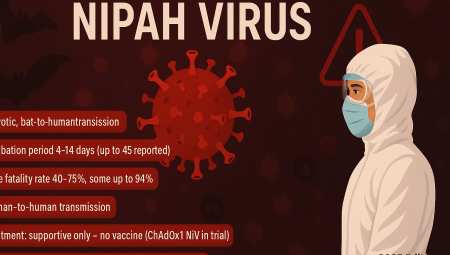In the intricate landscape of human health, few connections are as fascinating and impactful as the gut-brain axis. This bidirectional communication highway links your digestive system directly to your central nervous system, influencing everything from your mood and memory to your stress response and overall cognitive function. Far from being just a digestive organ, your gut, with its teeming microbial inhabitants, emerges as a “second brain” – a critical player in your mental well-being.
This comprehensive guide delves into gut-brain axis nutrition, exploring how what you eat profoundly impacts your mind. We’ll uncover the science, reveal practical strategies, and equip you with expert tips to optimize this vital connection for a healthier, sharper you. If you’re seeking a holistic approach to mental clarity, emotional balance, and peak cognitive performance, understanding and leveraging gut-brain axis nutrition is your ultimate starting point.
What is the Gut-Brain Axis and Why Does Nutrition Matter?
Understanding the Intricate Connection Between Your Gut and Brain
The gut-brain axis is a complex communication network that connects your enteric nervous system (ENS) in the gut with your central nervous system (CNS) in the brain. Think of it as a superhighway with multiple lanes, including the vagus nerve (a direct neural pathway), hormonal signaling, immune system interactions, and the fascinating world of microbial metabolites. This continuous dialogue means that the state of your gut directly influences your brain, and vice-versa. Stress, for instance, can impact your digestion, while specific foods can influence your mood.
How Does Gut-Brain Axis Nutrition Directly Influence Your Mood and Cognition?
Gut-brain axis nutrition isn’t just about feeding your body; it’s about feeding your mind. The foods you consume directly impact your gut microbiome – the trillions of bacteria, viruses, and fungi residing in your intestines. These microbes play a pivotal role in synthesizing neurotransmitters like serotonin (the “feel-good” hormone, with over 90% produced in the gut), regulating inflammation, and producing short-chain fatty acids (SCFAs) like butyrate, which fuel brain cells and protect the blood-brain barrier. Therefore, choosing the right foods is paramount for a well-functioning gut-brain axis.
7 Proven Ways to Optimize Your Gut-Brain Axis Nutrition
Harnessing the power of gut-brain axis nutrition involves strategic dietary choices that nurture your microbiome and support seamless communication between your gut and brain. Here are seven evidence-backed approaches:
1. Embrace Probiotic-Rich Fermented Foods
What are the best fermented foods for gut-brain axis health?
Fermented foods are teeming with beneficial live bacteria (probiotics) that directly contribute to a diverse and healthy gut microbiome. These probiotics can produce neurotransmitters, reduce inflammation, and enhance gut barrier function, all critical for optimal gut-brain axis nutrition.
- Examples: Yogurt (live and active cultures), kefir, sauerkraut, kimchi, kombucha, tempeh, miso.
- How to incorporate: Add a spoonful of sauerkraut to your salad, enjoy a daily serving of plain yogurt, or sip on kombucha as a refreshing drink. Start small to allow your gut to adjust.
2. Prioritize Prebiotic Fiber Intake
Why is prebiotic fiber essential for a healthy gut-brain axis?
Prebiotic fibers are non-digestible components of food that selectively feed your beneficial gut bacteria. When these fibers are fermented by microbes, they produce beneficial compounds like SCFAs, which are vital for gut integrity and have systemic anti-inflammatory effects that can positively impact brain health. They are the true fuel for gut-brain axis nutrition.
- Examples: Garlic, onions, leeks, asparagus, bananas (slightly green), oats, chicory root, dandelion greens, apples.
- How to incorporate: Sauté garlic and onions as a base for meals, add sliced bananas to your oatmeal, or include asparagus as a side dish.
3. Integrate Omega-3 Fatty Acids
How do Omega-3s support the gut-brain connection?
Omega-3 fatty acids, particularly EPA and DHA, are renowned for their anti-inflammatory properties and their role in brain health.1 They can influence the composition of the gut microbiome, reduce gut inflammation, and support neural pathways, making them a cornerstone of gut-brain axis nutrition.
- Examples: Fatty fish (salmon, mackerel, sardines), flaxseeds, chia seeds, walnuts, omega-3 supplements.
- How to incorporate: Aim for 2-3 servings of fatty fish per week, sprinkle flaxseeds on your yogurt, or include walnuts in your snacks.
4. Reduce Processed Foods and Added Sugars
What is the impact of processed foods on the gut-brain axis?
Highly processed foods, rich in unhealthy fats, refined sugars, and artificial additives, can disrupt the delicate balance of your gut microbiome, promoting the growth of harmful bacteria and increasing gut inflammation. This negative shift can compromise the gut-brain axis, leading to mood swings, reduced cognitive function, and increased risk of chronic diseases.
- Strategy: Focus on whole, unprocessed foods. Cook meals at home more often to control ingredients. Read labels carefully and limit foods with long ingredient lists or high sugar content.
5. Consume Polyphenol-Rich Foods
Why are polyphenols important for gut-brain axis health?
Polyphenols are plant compounds known for their antioxidant and anti-inflammatory properties. They are not fully digested in the small intestine, reaching the colon where they are metabolized by gut bacteria. This interaction can enhance the diversity of the microbiome and produce beneficial metabolites that influence brain health, making them a key part of gut-brain axis nutrition.
- Examples: Berries, dark chocolate, coffee, green tea, red wine (in moderation), nuts, seeds, vibrant colored fruits and vegetables.
- How to incorporate: Enjoy a handful of mixed berries daily, choose quality dark chocolate, or brew a cup of green tea.
6. Consider Fiber Diversity and Resistant Starch
How does diverse fiber intake boost your gut-brain axis?
A wide variety of fibers supports a more diverse gut microbiome, as different bacteria prefer different types of fiber. Resistant starch, a type of carbohydrate that resists digestion in the small intestine, acts like a prebiotic, fermenting in the large intestine to produce SCFAs vital for gut-brain axis nutrition.
- Examples of Resistant Starch: Cooled cooked potatoes or rice, green bananas, lentils, beans, oats.
- How to incorporate: Prepare potatoes or rice and allow them to cool before eating (e.g., in salads). Include a variety of legumes in your diet.
7. Hydrate Adequately
What role does hydration play in gut-brain axis nutrition?
While not directly a nutrient, adequate hydration is fundamental for optimal digestion and nutrient absorption. Water helps fiber move through the digestive tract smoothly, preventing constipation, which can negatively impact gut health and, by extension, the gut-brain axis.
- Strategy: Drink plenty of water throughout the day. Listen to your body’s thirst cues. Herbal teas and water-rich fruits/vegetables also contribute to your hydration goals.
Conclusion: Nourish Your Gut, Nurture Your Mind
The profound connection of the gut-brain axis highlights an exciting frontier in health and wellness. By consciously adopting a gut-brain axis nutrition approach, you’re not just improving your digestive health; you’re actively investing in your mental clarity, emotional resilience, and overall vitality. Remember, small, consistent dietary changes can lead to significant positive shifts in how you think, feel, and function.
Embrace the power of probiotics, prebiotics, healthy fats, and a whole-food diet to cultivate a thriving gut microbiome. As your gut health flourishes, so too will the connection to your brain, paving the way for a healthier, happier you. Your gut is ready to talk to your brain – are you ready to listen?
💼 Pro Tips: Expert Insights for Advanced Gut-Brain Axis Nutrition
- Tip 1: Personalize Your Approach: Everyone’s microbiome is unique. Pay attention to how different foods make you feel. What works wonders for one person might not be ideal for another. Keep a food and mood journal.
- Tip 2: Stress Management is Key: Nutrition is crucial, but stress profoundly impacts the gut-brain axis. Incorporate stress-reducing practices like meditation, yoga, or spending time in nature to enhance your dietary efforts.
- Tip 3: Prioritize Sleep Quality: A well-rested body supports a healthy gut and brain. Poor sleep can negatively alter the microbiome composition and increase gut inflammation, disrupting the axis.
- Tip 4: Mindful Eating Practices: Slow down, chew your food thoroughly, and savor your meals. Mindful eating can improve digestion and reduce stress, indirectly supporting the gut-brain connection.
- Tip 5: Consider a Diversified Plant-Based Diet: Aim for at least 30 different plant-based foods per week to maximize microbial diversity. This “30-plant challenge” is a powerful gut-brain axis nutrition strategy.
- Tip 6: Consult a Professional: For chronic digestive or mood issues, consider working with a registered dietitian or a functional medicine practitioner. They can offer personalized insights and testing (e.g., microbiome analysis).
❓ Frequently Asked Questions (FAQ)
What exactly is the vagus nerve and its role in the gut-brain axis?
The vagus nerve is the longest cranial nerve, acting as a primary communication highway in the gut-brain axis. It directly transmits signals between the brain and the gut, influencing digestion, heart rate, and even mood. A healthy gut microbiome can stimulate the vagus nerve, sending positive signals to the brain, while stress can inhibit its function, impacting gut health.
Can optimizing gut-brain axis nutrition help with anxiety or depression?
While not a standalone cure, emerging research strongly suggests that optimizing gut-brain axis nutrition can significantly support mental health conditions like anxiety and depression. By fostering a healthy gut microbiome and reducing inflammation, you can positively influence neurotransmitter production and reduce stress responses, complementing traditional treatments.
How long does it take to see improvements from dietary changes for the gut-brain axis?
The timeline for observing improvements from gut-brain axis nutrition changes varies. Some individuals report feeling better within a few days to weeks, experiencing improved digestion, mood stability, or increased energy. For more profound and lasting effects, consistent dietary changes over several months are often required as your gut microbiome adapts and strengthens.
Are there any specific supplements that are highly recommended for the gut-brain axis?
While whole foods should always be the priority for gut-brain axis nutrition, certain supplements can be beneficial under guidance. These include broad-spectrum probiotics, prebiotics like inulin or FOS, and high-quality omega-3 fatty acid supplements (EPA/DHA). Always consult a healthcare professional before starting any new supplement regimen.
Can children benefit from focusing on gut-brain axis nutrition?
Absolutely. The gut-brain axis begins developing early in life, and nurturing a healthy gut microbiome in children can have profound impacts on their cognitive development, mood regulation, and overall health. Encouraging a diverse diet rich in whole foods, fiber, and fermented items from a young age is an excellent strategy for their long-term well-being.
We hope this comprehensive dive into Gut-Brain Axis Nutrition empowers you to take charge of your well-being. What steps are you considering to nourish your gut for a healthier mind? Share your thoughts and questions in the comments below – we’d love to hear from you!



